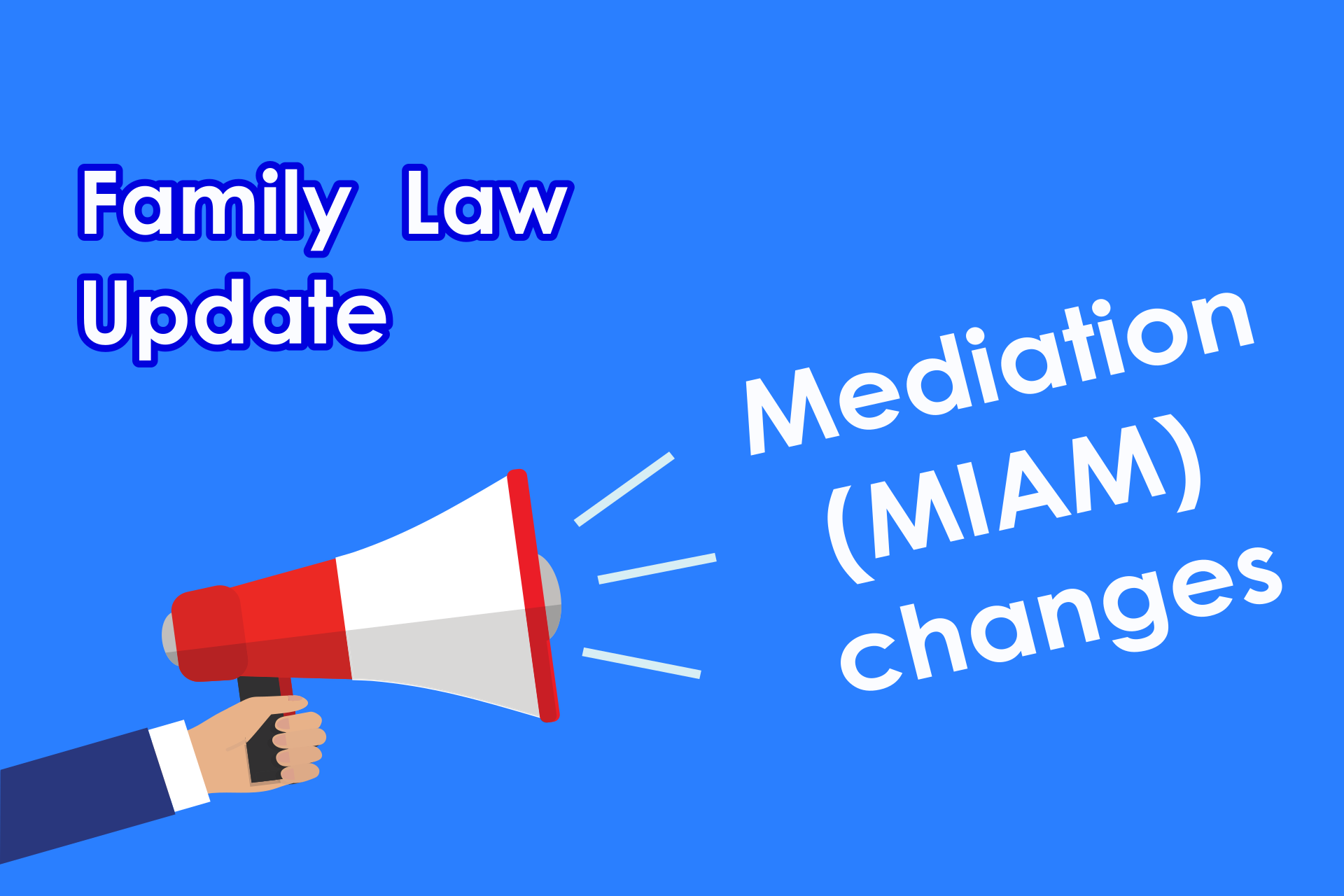Currently, if you want to make an application to the court you need to first attend a Mediation Information and Assessment Meeting (MIAM). This is an initial meeting with a mediator who assesses your case and whether they think matters could be resolved outside of the court arena.
The purpose of a MIAM is to try and deal with a case in a constructive and collaborative way. Resolving matters outside of court is also more cost-effective and timely.
Unfortunately, MIAM’s are becoming a ‘tick box exercise’ and the court rarely have time to look into whether or not you have explored out of court resolutions. This has more of an impact on the court than you would think with precious court time being swallowed by cases that could be dealt with via mediation or even through solicitors.
The changes to MIAM exemptions and requirements come from a change to the Family Procedure Rules and are a push towards a non-confrontational approach to the law, aiming to keep a focus on resolution. This article explores the changes which are due to be implemented in April 2024.
Reduction of MIAM exemptions
There are various exemptions which allow you to make a court application without attending a MIAM first, but the list is being reduced. The most common exemption is domestic abuse as mediation is not appropriate in those circumstances. You may also be exempt if you have attended a MIAM in the past four months.
However, you will no longer be exempt if you are making an application within existing proceedings and a MIAM exemption has already been claimed. For example, if your ex-partner made an application to the court and claimed an exemption, you cannot claim an exemption for your own application simply because your ex-partner did so. This change has been made to encourage you to continually review if mediation is appropriate.
The exemptions are also being tightened following a rise in remote MIAM’s online or via video call. Currently, those who are disabled, imprisoned or live some distance from a local mediator can claim an exemption due to the difficulty in physically attending a MIAM. The changes now require those applicants to prove they cannot attend online or by video link and that they have contacted five MIAM providers who state that they are all unable to provide the required appropriate facilities. You will also need to evidence your correspondence with those mediators to the court
The changes apply to mediators themselves and they will no longer be able to deem mediation unsuitable without meeting either participant.Exploring non-court dispute resolution at every stage
If court proceedings are instigated, you will be asked to complete a form seven days before each hearing setting out whether you would agree to using non-court dispute resolution, like mediation or arbitration. By doing so, you and the court will constantly be reviewing the best way for the matter to be dealt with. Whilst court proceedings can be seen as contentious, you may quickly realise how much time and money is being spent on an issue that could be resolved in a more amicable way. Checking in with both parties before every hearing is a good way to keep focused on the issues at hand.The power of Judges
Currently, the court can adjourn a hearing to allow time for non-court dispute resolution options to be explored if both parties agree. Following the decision made in the non-family case of Churchill v Merthyr Tydfil CBC [2023] EWCA Civil 1416 (https://www.judiciary.uk/judgments/james-churchill-v-merthyr-tydfil-county-borough-council/) the court will be given the power to adjourn hearings even if neither party agrees. Of course, it must be suitable to do so in the circumstances but as an example, the court may send you and your ex-partner off to mediation before a first hearing or after an expert report is received. That way, the issues may narrow and a resolution may come about quicker.Cost penalties
When it comes to costs, the court’s general standpoint is that you should pay your own fees. Costs orders are rarely made in children matters but can be commonplace in financial remedy cases. The new rules are clear that anyone refusing to engage in non-court dispute resolution options without good reason (within financial proceedings) could face a costs penalty. As with all the changes, this will hopefully encourage everyone to always be thinking of the most constructive way forward.
Visit this link to see the full list of amendments being made to the Family Procedure Rules: https://www.legislation.gov.uk/uksi/2023/1324/made
At E J Coombs, we are dedicated to a non-confrontational approach to disputes and encourage a collaborative approach. We are committed to helping you find the best way forward so speak with one of our team today to arrange an appointment.




